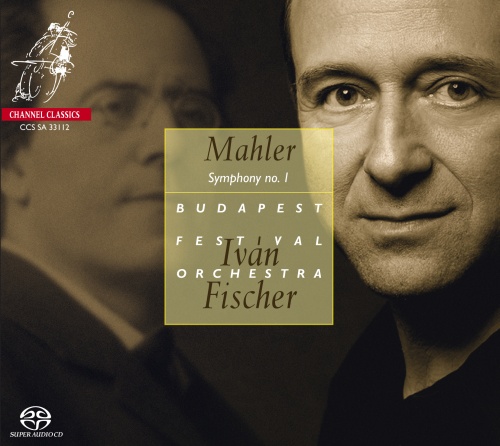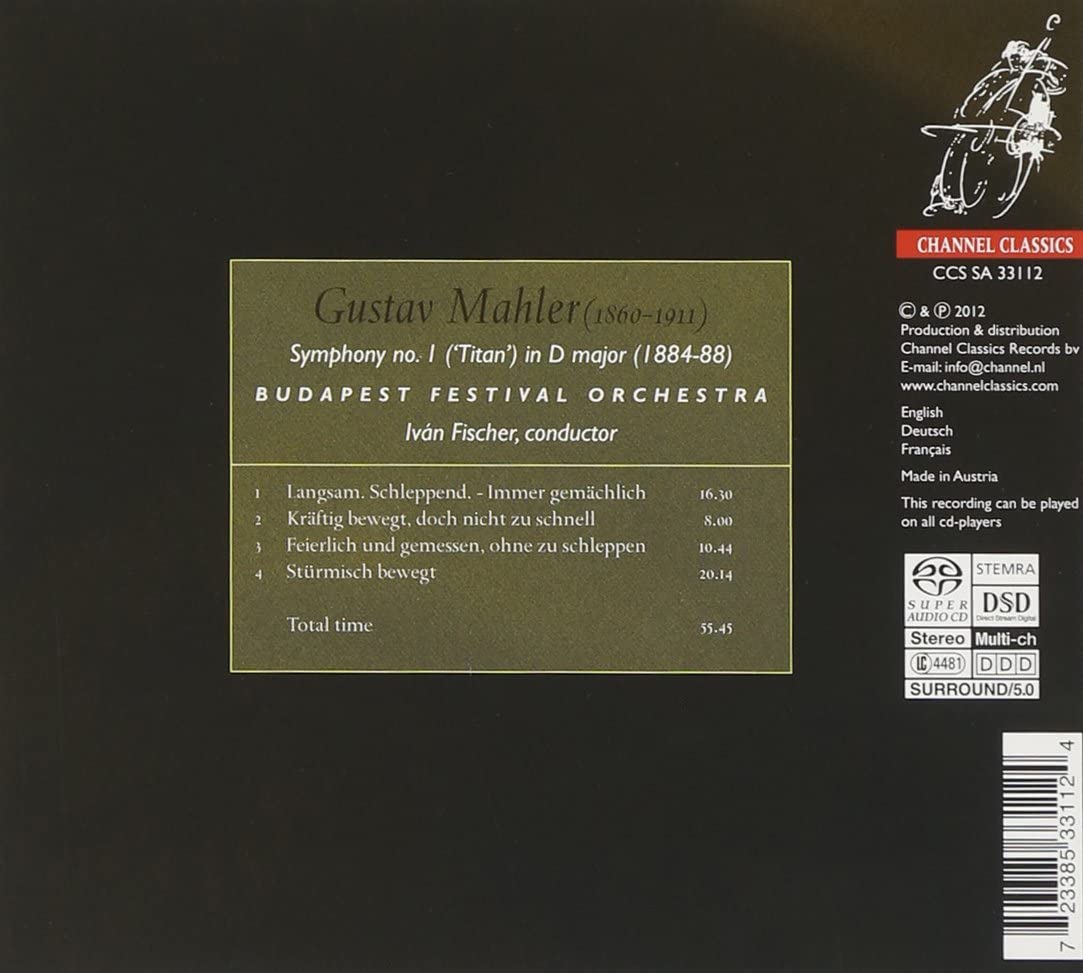
classical music distribution


(Produkt nie został jeszcze oceniony)



kompozytor
Mahler, Gustav
tytuł
Mahler: Symphony no. 1
wykonawcy
Budapest Festival Orchestra;
Fischer, Iván
Fischer, Iván
nr katalogowy
CCS SA 33112
opis
The Hungarian conductor and his Budapest orchestra bring a wonderfully rustic, unrefined flavour to Mahler’s völkisch central movements, in an interpretation which benefits from Fischer’s ear for balance and attention to the smallest details of orchestration. 'In full sail' (his original title for the second movement) could be a motto for the whole symphony. Here is the young Mahler, full of optimism. We hear his love of nature and beauty, and his childhood memories. Fragments of distant military music, birdsong and Yiddish folk tunes come to his yet untormented mind. These episodes are real jewels, especially the Viennese trio in the second movement, the brief Klezmer music, then the Schubert-like Lied (did he have the Lindenbaum in mind?) in the third; and the poetic, gentle melody that interrupts the stormy final movement. Admirable too is the architecture, as the composer completes his journey from hell to paradise - dall’inferno al paradiso - in the footsteps of his idol Beethoven. Mahler was in his late twenties when the world made acquaintance with his first symphony. It was in the Hungarian capital Budapest, and circumstances were difficult. In the diffuse acoustics of the Vigadó Hall, surrounded by hatred and mistrust, Mahler experienced his first major flop. Since then, at each performance I feel that we Hungarians have a moral duty to convince audiences that this is a perfect and exceptionally beautiful masterpiece.
nośnik
SACD
gatunek
Muzyka klasyczna
producent
Channel Classics
data wydania
20-08-2012
EAN / kod kreskowy
723385331124
Produkt nagrodzony:
Classics Today 10/10 (2012)
Diapason D'or 5 stars (2012)
Grammy: 'Nominee' (2013)

(Produkt nie został jeszcze oceniony)
cena 89,00 zł
lubProdukt na zamówienie
Wysyłka ustalana indywidualnie.
Darmowa wysyłka dla zamówień powyżej 300 zł!
Darmowy kurier dla zamówień powyżej 500 zł!
sprawdź koszty wysyłkiProduktu jeszcze nie zrecenzowano, chcesz być pierwszy?
Klienci, którzy kupili ten produkt, kupili również
różni kompozytorzy
Carneval Oriental - Lully; Campra; Cesti; Monteverdi; Corelli; Scarlatti; Handel; Uccelini; ...
C 5263
różni kompozytorzy
Ostinato - Fásolo: Lamento Di Madama Lucia, Jácara: Para TenerNochebuena, Fásolo: Ciaccona, Españoleta
Alpha 817
różni kompozytorzy
The Belyayev Project - Rimsky-Korsakov, Lyadov, Glazunov, Blumenfeld
PH 12033
Pozostałe płyty tego kompozytora
Mahler, Gustav, Berio, Luciano
WYCOFANY Berio: Sinfonia; Mahler / Berio: 10 Frühe Lieder
HMC 902180
różni kompozytorzy
WYCOFANE 30 Years Channel Classics - Gramophone Editor-in-Chief Choices
CCS SA SEL 7020
Mahler, Gustav
Musical Journey: Mahler: Symphony No. 1 (with scenery and sights from Switzerland, Austria, Italy, Germany)
2.110314
Wagner, Richard, Mahler, Gustav, Schubert, Franz
Schubert: String Quartet No. 14 ( Death and the Maiden ) / Wagner: Wesendonck Lieder / Mahler:
C 71098
Pozostałe płyty tego wykonawcy
Dvorak, Antonin, Tchaikovsky, Piotr
Dvorak: Cello Concerto/ Tchaikovsky: Variations on a Rococo Theme
HCD 12868
Napisz recenzję dla: Mahler: Symphony no. 1
Zapytaj o dostępność produktu
Twoje zapytanie:
Odpowiemy na adres:
Produkt został dodany do koszyka

Mahler, Gustav
Mahler: Symphony no. 1
1 szt











































